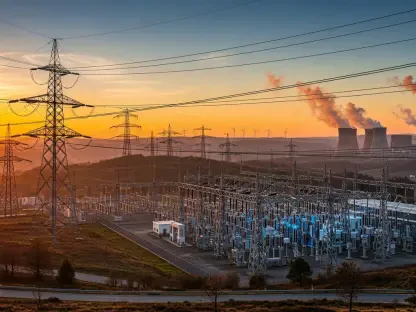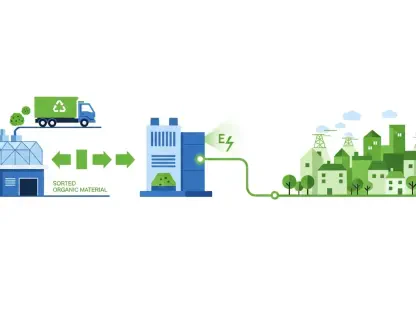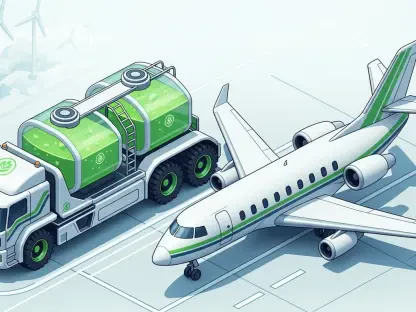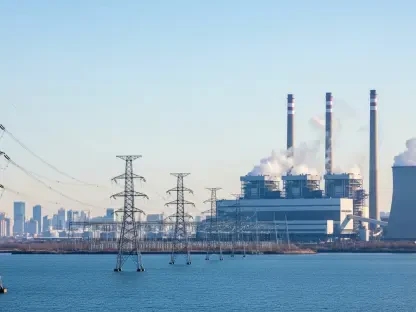The transportation sector faces mounting pressure to achieve carbon neutrality, driving a significant shift toward the adoption of alternative fuels across various vehicle categories. As the world seeks sustainable solutions, advancements in biofuels, hydrogen, renewable natural gas (RNG), and electricity become increasingly important. The ultimate goal is to revolutionize road transport and reduce carbon emissions, but numerous challenges and opportunities lie ahead.
Emerging Trends in Alternative Fuels
Several overarching trends are emerging as the world transitions to alternative fuels. Electric vehicles (EVs) are gaining traction in light transport sectors due to their zero-emission capabilities and increasing affordability. Hydrogen is becoming a preferred choice for heavy-duty trucking, offering longer-range capabilities and faster refueling times. Meanwhile, RNG is promoted as a low-carbon alternative that seamlessly integrates into existing infrastructure.
Biofuels continue to hold value because they are compatible with conventional engines, making them an attractive option for industries looking to reduce their carbon footprint without significant vehicle modifications. These trends are primarily driven by sustainability goals, aiming to minimize environmental impact and comply with stricter emission regulations.
Evolution of Refueling Infrastructure
To accommodate these changes, traditional petrol stations are evolving to serve a diverse range of alternative fuel vehicles. Companies such as Aral are leading the charge by establishing specialized charging stations for trucks. Future refueling points are expected to cater to a mix of electric, hydrogen, and liquefied natural gas (LNG) vehicles.
These advanced stations will feature ultra-fast charging facilities, hydrogen refueling capabilities, and digital tools designed to enhance fleet management. Real-time fuel tracking, automated billing, and predictive maintenance systems are anticipated to significantly improve operational efficiency and reduce vehicle downtime, benefiting logistics companies.
Challenges in the Logistics Sector
Despite rapid advancements, the logistics sector continues to face significant fuel efficiency challenges. Volatile fuel prices put immense pressure on operating costs, while the limited range of electric and hydrogen vehicles remains a barrier for long-haul transport. Inconsistent availability of refueling and recharging stations further complicates logistics planning.
The push for stricter emissions regulations forces the logistics industry to identify fuel solutions that are not only efficient but also universally suitable across different vehicle types. Overcoming these challenges is crucial for achieving a sustainable and efficient logistics network.
Infrastructure and Technological Enhancements
To expand the refueling network for electricity, hydrogen, and RNG, particularly for long-distance transport, substantial infrastructure improvements are imperative. High-speed charging stations for trucks and grid capacity upgrades are necessary to meet the growing demand for EVs. However, significant barriers such as high infrastructure costs, regulatory inconsistencies, and a lack of standardized solutions hinder progress.
Collaboration between governments and industry stakeholders is essential to overcome these obstacles. Improved coordination can facilitate the development of a robust infrastructure that supports the widespread adoption of alternative fuels.
Role of Data Analytics and IoT
Data analytics and Internet of Things (IoT) technology play a pivotal role in optimizing fleet management when transitioning to alternative fuels. Telematics systems track vehicle performance and optimize fuel consumption by routing vehicles through corridors with alternative fuel stations, minimizing delays and operational disruptions.
Real-time data enables companies to measure environmental impact and align with sustainability goals. Performance tracking allows comparison of different fuel types, aiding in more informed investment decisions. By leveraging data, fleet managers can make strategic choices that enhance efficiency and reduce carbon emissions.
Future Outlook
The transportation sector is under growing pressure to achieve carbon neutrality, leading to a major shift towards alternative fuels for different types of vehicles. As the world looks for sustainable solutions, advancements in biofuels, hydrogen, renewable natural gas (RNG), and electricity are becoming increasingly crucial. These developments are seen as key to transforming road transport and significantly reducing carbon emissions. However, this transition is fraught with numerous challenges. For instance, while biofuels offer a more immediate alternative, their production can sometimes conflict with food supply chains. Hydrogen, on the other hand, requires significant infrastructure investment to become viable on a large scale. Renewable natural gas presents a promising option but faces issues related to collection and distribution. Lastly, the shift to electric vehicles demands advancements in battery technology and charging infrastructure. Despite these challenges, the opportunities for innovation and environmental impact are immense, making the pursuit of alternative fuels essential for a sustainable future in transportation.









